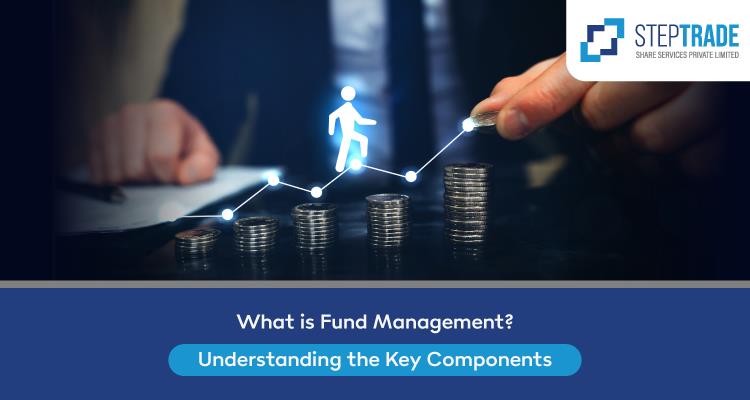Fund management is central to effective wealth creation and long-term financial planning. In a dynamic and complex market landscape, individuals and institutions rely on professional fund managers to guide investment decisions, manage risk, and work toward defined financial outcomes.
At Steptrade Capital, we understand how crucial strategic fund management is to building sustainable value. This blog explores what fund management entails and breaks down the major components that make it effective.
What is Fund Management?
Fund management refers to the professional monitoring of investment portfolios, where capital from individuals or institutions is pooled and allocated across various financial instruments. The objective is to achieve consistent returns in line with the fund's goals, while maintaining a balance between risk and reward.
Fund managers evaluate markets, study trends, and make informed investment choices based on the fund's strategy. The types of funds that require active management include:
- Mutual Funds
- Alternative Investment Funds (AIFs)
- Hedge Funds
- Pension Funds
- Exchange-Traded Funds (ETFs)
- Private Equity Funds
- Portfolio Management Services (PMS)
At its core, fund management aims to maximize returns while aligning with investor expectations, timelines, and risk tolerance.
Key Components of Fund Management
1. Investment Strategy
A well-defined strategy guides every fund. It outlines the fund's objectives—whether growth, income, or capital preservation—and provides direction for asset selection and risk management.
2. Asset Allocation
This is the process of distributing investments across different asset classes, such as equities, fixed income, commodities, or real estate. Strategic allocation is essential to minimize risk and capitalize on market opportunities.
3. Portfolio Construction
Portfolio construction involves choosing specific securities within each asset class. This step focuses on achieving diversification and maintaining alignment with the fund's risk-return profile.
4. Risk Management
Managing risk is fundamental to fund performance. Techniques like diversification, hedging, and ongoing monitoring help reduce exposure to volatility, credit issues, or market downturns.
5. Research and Analysis
Rigorous research backs sound decisions. Fund managers assess macroeconomic trends, industry data, and company-specific financials using both fundamental and technical analysis.
6. Performance Monitoring
Performance is continuously tracked against benchmarks and key indicators. Managers review and rebalance portfolios to respond to market shifts and maintain strategic alignment.
7. Compliance and Regulation
Staying compliant with regulatory guidelines is vital. Funds must operate within legal frameworks to ensure transparency, accountability, and investor protection.
8. Investor Reporting
Clear and consistent communication with investors builds trust. Fund managers provide regular updates on fund performance, strategy, and market conditions.
Conclusion
Fund management is a multi-faceted discipline that requires expertise, vigilance, and adaptability. Understanding its key components offers more detailed insight into how funds are structured and managed to deliver value over time.
At Steptrade Capital, we combine strategic insight with disciplined execution to help clients manage their portfolios with confidence. Our specialized approach to fund management in the SME and microcap fund is rooted in thorough research, guided by rigorous risk awareness, and aligned with your financial goals.
Contact us today to learn more about our investment funds!











